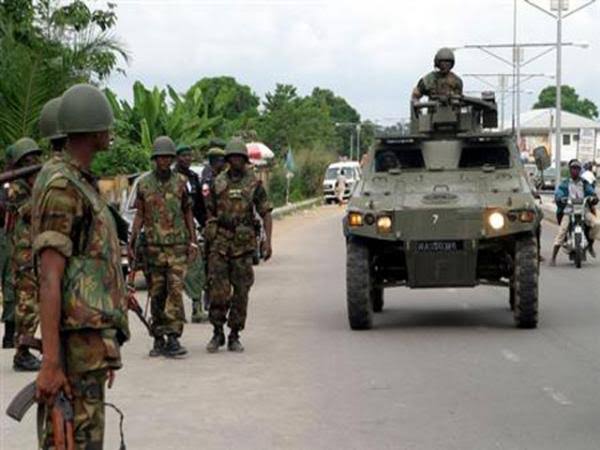Heavy military presence in Southeast as Nigerian Army escalates conflict with IPOB after the killing of soldiers in Abia state. Calls for political solutions and support for affected families highlight the urgent need for peace and dialogue.
In recent months, Nigeria’s Southeast has been marred by escalating violence and a heavy military presence, reminiscent of the dark days of the Nigeria-Biafra civil war. The situation reached a boiling point following the assassination of Ahmed Gulak, a former political adviser to ex-President Goodluck Jonathan, in Owerri, Imo State. His death was a catalyst for a series of aggressive military actions against the Indigenous People of Biafra (IPOB) and their paramilitary wing, the Eastern Security Network (ESN).
The Nigerian military’s offensive against IPOB has led to numerous clashes, with the heavy military presence in the Southeast becoming increasingly noticeable. President Bola Ahmed Tinubu has made it clear that his administration will come down hard on those attacking military personnel, emphasizing that such acts will not be tolerated. In his words,
“The fact that the security forces are exercising necessary restraints when attacked should not be mistaken for weakness.”
Abia State has been particularly affected by the violence. The recent sit-at-home order by IPOB and the Movement for the Actualization of Biafra (MASSOB) to honor Biafra heroes turned deadly, resulting in the killing of three soldiers and widespread disruption. Streets were deserted, businesses shuttered, and tension escalated as the state government condemned the attack, placing a ₦25 million bounty on the assailants. The government has also promised to support the families of the slain soldiers, offering stipends to their spouses and educational funding for their children.
Former Vice President Atiku Abubakar has called for a political solution to the crisis, advocating for the release of IPOB leader Nnamdi Kanu to defuse the tension in the region. Atiku believes that a political resolution would be a “win-win for all parties,” potentially lifting the veil of the so-called Unknown Gun Men and separating criminal elements from legitimate agitators.
The heavy military presence in the Southeast not only claims lives but also disrupts daily life, affecting students writing WAEC examinations and causing widespread fear among residents. The federal government’s heavy-handed approach, while aimed at restoring order, risks inflaming the situation further if not handled with care.
In this climate of uncertainty, the need for a balanced and compassionate approach is critical. The Nigerian government must navigate the delicate path between maintaining security and addressing the legitimate grievances of its citizens. The pursuit of peace and stability in the Southeast requires dialogue, understanding, and a commitment to justice for all.
Reference
- – President Bola Ahmed Tinubu’s statement on military action.
- – The aftermath of the sit-at-home order in Abia State.
- Former Vice President Atiku Abubakar’s call for a political solution.
By addressing the root causes of the conflict and engaging in meaningful dialogue, Nigeria can hope to move towards a more peaceful and prosperous future for all its citizens.
